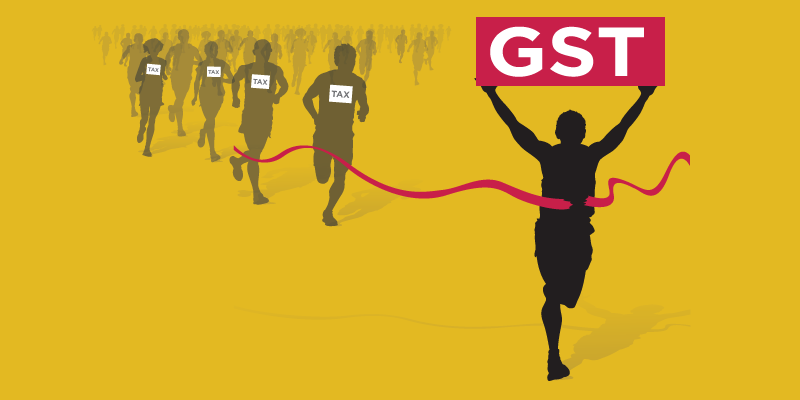
The Goods and Services Tax (GST) is focused on removing the tax barriers for the businessman and the consumers by creating a single market. The single market will help buyers pay just one penultimate tax rather than paying hidden taxes which indirectly contributed to the price of the product. Considering all these aspects, buyers across the country will find it reasonable to pay a tax of 20% than paying hidden taxes. In short, the GST bill is bound to integrate the economic structure of the country, as it streamlines and consolidates the taxation process making it effectively simpler for everyone.
How will it help business entrepreneurs?
While the GST is bound to help the consumers in every aspect, here is a gist of how it could influence new ideas by various business entrepreneurs.
Starting a new business would not be an onerous ordeal here on. The introduction of GST would eliminate all the cascading taxes one pays during the establishment of an organization. By having a centralised registration process, the taxation process will be uniform, rid of all the complexity that increases at every state. The GST will also ensure the costs incurred in logistics reduces considerably, thanks to the ease in interstate movement of goods.
While the advantages of the GST are sizeable and considerable in every facet, not everything about the reform is a ray of hope for business entrepreneurs. The introduction of the GST brings about equal treatment for big corporates and existing startups, which going by the current business scenario, does not seem like an advantage for youngbusiness entrepreneurs. By implementing the GST, the tax exemption threshold for business units would see a significant reduction, ensuring that the startups falling under the reduced bracket would also have to pay the taxes. The removal of the safety net for the startup ecosystem might put young business entrepreneurs across the country under pressure.
E-commerce and other online startups
Many startups are technologically innovative meaning they have a huge presence online. Many startups provide goods and services through the internet. GST is applicable all over India so there is no complication for inter-state movement of goods. Currently, states have different VAT laws. For example, online websites (like Flipkart Amazon) delivering to Uttar Pradesh, have to file a VAT declaration and the registration number of the delivery truck. Tax authorities sometimes seize goods when there is a failure to produce documents.
Again, they are treated as facilitators or mediators by states like Kerala, Rajasthan, West Bengal not requiring them to register for VAT.
All these differential treatments and confusing compliances will be removed in GST.
Sources: www.cleartax.in, www.moneycontrol.com
